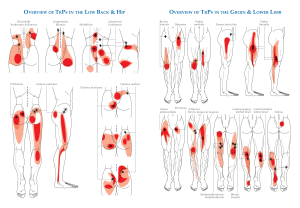What Is a Laminectomy?

A is a surgical procedure where a neurosurgeon removes a portion of a vertebra to create more space around the spine. The extra space takes the pressure off of your spinal cord and nerves and helps relieve symptoms such as:
- Discomfort
- Numbness
- Limb weakness
- Shooting or radiating pain
- Difficulties with bowel or bladder control
- Trouble standing or walking
Which Conditions Can a Laminectomy Help?
Several conditions can cause pressure on your spinal cord or nerve roots, contributing to symptoms. These include:
- : a narrowing of your spinal canal.
- : the gel-like center of your spinal disc pushes outward or ruptures.
- Tumor: an abnormal growth of cells around the spinal column.
- Injury: fragments of bone or disc press against the spinal cord or nerves.
Conservative treatments such as physical therapy, pain relievers, and steroid injections are often tried first for symptom relief.
However, if your pain does not improve or if your symptoms are chronic, severe, or worsening, a laminectomy may help.
What Is a Laminectomy?
A laminectomy is an operation that removes the lamina, a bony portion of vertebrae that shields and supports the back side of the spinal cord. Removing the lamina lessens the pressure on the spinal cord and nerve roots. This procedure might be recommended to offer you relief.
What Should I Expect Before, During, and After a Laminectomy?
Before surgery
Your doctor will complete a health history and physical exam to ensure you can undergo the surgery. They will review your imaging and laboratory results.
It is important to inform your doctor about your medications, including over-the-counter products, herbs, vitamins, and supplements. Be sure also to tell them any sensitivities or allergies you may have, such as latex or anesthesia medicines.
It is a good idea to discuss any concerns you may have as the doctor reviews the surgical procedure with you.
During surgery
You will be given anesthesia so you are asleep and positioned on your stomach for the procedure. You can expect the surgery to last around one to three hours.
Your doctor will make a cut, or incision, over the area of your back where the compressed nerves are. Your skin and muscles are moved to the side to access your spine. They will then remove the lamina to release the pressure on the nerves in the area.
After surgery
You can expect to spend some time in the recovery room to be observed. Once you are stable, you will be taken to your hospital room. Your doctor will encourage you to get up and walk around when possible. They will also give you pain medication to help minimize discomfort.
A laminectomy usually requires you to stay in the hospital for one to two days. When you can go home, follow instructions on how to care for your incision, maintain pain control, and optimize your recovery.
Is Laminectomy an Option for Me?
A laminectomy can provide relief from chronic back pain. If your pain has not been managed well using other methods, you may benefit from a laminectomy.
Schedule your initial appointment with a neurosurgeon today! with an experienced, skilled neurosurgeon are also available.




